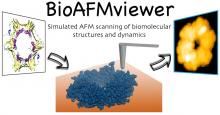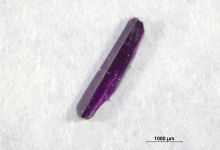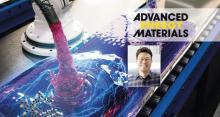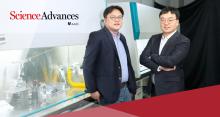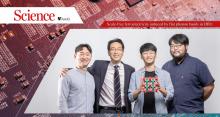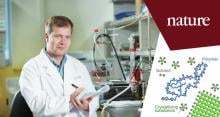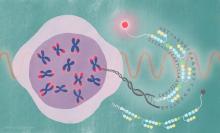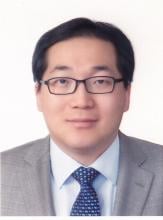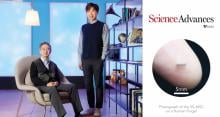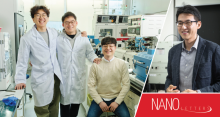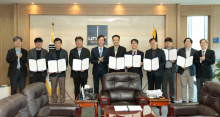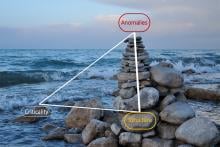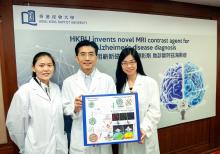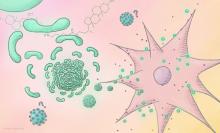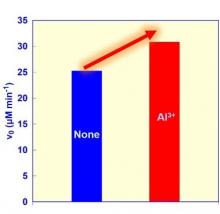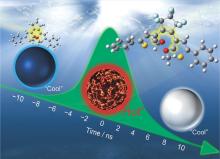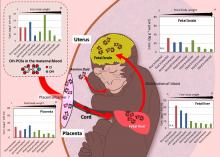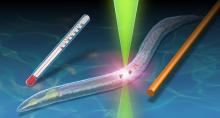Chemistry
News
22 Dec 2020
Atomic force microscopy (AFM) allows to obtain images and movies showing proteins at work, however with limited resolution. The developed BioAFMviewer software opens the opportunity to use the enormous amount of available high-resolution protein data to better understand experiments. Within an interactive interface with rich functionality, the BioAFMviewer computationally emulates tip-scanning of any biomolecular structure to generate simulated AFM graphics and movies. They greatly help in the interpretation of e.g., high-speed AFM observations.
10 Dec 2020
A polymer electrode gets an electrical boost for use in E-skin devices.
09 Dec 2020
Researchers at Hiroshima University in Japan have blended together various polymer and molecular semiconductors as photo-absorbers to create a solar cell with increased power efficiencies and electricity generation.
25 Nov 2020
Materials that convert mechanical into electrical or magnetic energy could open the door to a future of wearable and structure-integrated virus sensors.
25 Nov 2020
A team of scientists has succeeded in visualizing how carbon dioxide (CO2) behaves in an ionic liquid that selectively absorbs CO2. The finding is expected to help develop more efficient methods to capture CO2 in the atmosphere, one of the major factors causing global warming.
23 Nov 2020
A chance discovery leads to a simple process that can introduce ‘oxygen-missing layers’ into perovskite oxynitrides, changing their properties.
20 Nov 2020
A research team, affiliated with South Korea's Ulsan National Institute of Science and Technology (UNIST) has unveiled a new eco-friendly and low-cost method to synthesize indolopyran, one type of nitrogen ring compound, contained in about 60% of drugs that are recently approved by FDA.
20 Nov 2020
A research team, affiliated with South Korea's Ulsan National Institute of Science and Technology (UNIST) has developed an electrolyte additive (MA-C60) to reduce the problematic behaviors induced by water contamination and the ROS generated from Li‐rich cathodes.
20 Nov 2020
A recent study, affiliated with South Korea's Ulsan National Institute of Science and Technology (UNIST) has unveiled a novel technology that can improve the efficiency of quantum dot solar cells to 11.53% has been unveiled.
19 Nov 2020
A recent study, affiliated with South Korea's Ulsan National Institute of Science and Technology (UNIST) has unveiled a new technique that gives an enhanced hydrogen production yield by 5 times via the deposition of highly porous superaerophobichydrogels on a desired electrode surface.
19 Nov 2020
A research team, affiliated with South Korea's Ulsan National Institute of Science and Technology (UNIST) has proposed a new physical phenomenon that promises enhanced storage capacity of a fingernail-sized memory chip by 1,000 times.
19 Nov 2020
A recent study, affiliated with South Korea's Ulsan National Institute of Science and Technology (UNIST) has demonstrated that in the presence of polymers (preferably, polyionic liquids), crystals of various types grow in common solvents, at constant temperature, much bigger and much faster when stirred, rather than kept still.
19 Nov 2020
A repetitive DNA sequence that causes health risks when it malfunctions can now be watched inside living cells using a synthetic tool
17 Nov 2020
Scientists explain how selective electrostatic doping can balance the charge in optoelectronic devices with 2D materials
10 Nov 2020
Scientists create a 3D digital “twin” of an all-solid-state battery to visualize its interfacial microstructures in detail
03 Nov 2020
A recent study, affiliated with South Korea's Ulsan National Institute of Science and Technology (UNIST) has developed a new nanocatalyst that recycles major greenhouse gases, such as carbon dioxide (CO2) and methane (CH4), into highly value-added hydrogen (H2) gas.
03 Nov 2020
A recent study, affiliated with South Korea's Ulsan National Institute of Science and Technology (UNIST) has developed a tiny micro supercapacitor (MSC), being small as the width of a person's fingerprint.
03 Nov 2020
A recent study, affiliated with South Korea's Ulsan National Institute of Science and Technology (UNIST) has unveiled 2D material-based ultrasensitive surface-enhanced Raman spectroscopy (SERS) sensor by synthesizing uniform large-area ReOxSy thin films.
03 Nov 2020
Eight faculty members, affiliated with South Korea's Ulsan National Institute of Science and Technology (UNIST) have been honored with the 2019 Outstanding Faculty Award.
29 Oct 2020
Scientists at The University of Tokyo use a two-state model based on the formation of tetrahedral structures to explain water’s anomalous properties and the surprising liquid–liquid transition of water.
28 Oct 2020
Hong Kong Baptist University (HKBU) scientists have invented a novel contrast agent for magnetic resonance imaging (MRI), which enables real-time visualisation and detection of the size and number of amyloid-beta in the brain, a main hallmark of Alzheimer’s disease (AD). The invention offers hope for early detection and large-scale routine screening of AD. It can also help to assess the efficacy of drugs used to treat it.
13 Oct 2020
The trick to extremely thin supercapacitors with improved performance is spraying graphene ink at an angle.
01 Oct 2020
Scientists have found an ingredient that makes a vaccine more effective through an approach more often seen in materials science – testing molecules that self-assemble into larger structures.

01 Oct 2020
A Hokkaido University research group has successfully demonstrated that carbon-carbon (C-C) covalent bonds expand and contract flexibly in response to light and heat. This unexpected flexibility of C-C bonds could confer new properties to organic compounds.
29 Sep 2020
China’s success in improving air quality by cutting polluting emissions may have a negative knock-on effect on climate change overall, a new study has found.
29 Sep 2020
Researchers at Osaka City University produce malic acid, which contains 4 carbon atoms, through artificial photosynthesis by simply adding metal ions like aluminum and iron. This solves a problem with current artificial photosynthesis technology of only producing molecules with 1 carbon atom and paves the way to exploring the use of CO2 as a raw material.
25 Sep 2020
Researchers at Osaka City University create a quantum algorithm that removes spin contaminants while making chemical calculations on quantum computers. This allows for predictions of electronic and molecular behavior with degrees of precision not achievable with classical computers and paves the way for practical quantum computers to become a reality.
25 Sep 2020
An Ehime University group led by Dr. Ishibashi and Prof. Asahi reported that when a nanosecond laser pulse was irradiated to diarylethene nanoparticles which show the photo-induced isomerization reaction from the colored closed-form to the colorless open-form, the ring-opening reaction was at most 80 times more effective than that in the solution phase. The amplification could be well explained as a ‘photosynergetic effect’ coupled with nanoscale photothermal conversion and a photochemical reaction. There are very few reports of such a nanosecond laser pulse induced amplified photochemical reaction in nanoparticles, indicating a new photoenergy conversion method.
14 Sep 2020
This study selected the Japanese macaque (Macaca fuscata) as a model animal for the fetal transfer of OH-PCBs in humans, and revealed OH-PCB concentrations and their relationships in the maternal and fetal brains. The key finding from this study is that OH-PCBs can reach the developing brain of the fetus as early as the first trimester of pregnancy. These OH-PCBs may exceed the levels that induce adverse effects on neurodevelopment.
11 Sep 2020
Measuring the temperature of objects at a nanometer-scale has been a long challenge, especially in living biological samples, because of the lack of precise and reliable nanothermometers. An international team of researchers has realized a quantum technology to probe temperature on a nanometer-scale, and have observed a ‘fever’ in tiny nematode worms under pharmacological treatment. This strengthens the connection between quantum sensing and biology and ushers in novel thermal imaging technologies in biomedical research.
Events
Sorry, nothing coming up for this discipline
Researchers
Sorry, nothing coming up for this discipline
Giants in history
Sorry, nothing coming up for this discipline


